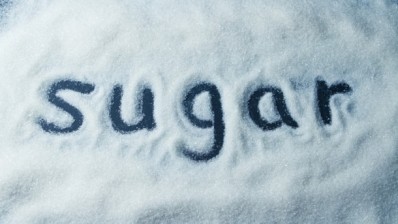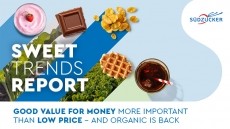Action on Sugar: New global campaign takes aim at high level of sugar in foods and drinks

The campaign, called Action on Sugar, will take aim at foods that contain high levels of sugar in a bid to encourage industry to lower sugar levels.
The group, led by international experts in metabolism and obesity, aims to make consumers more aware of 'hidden sugars', and to reduce sugar in food and drinks containing added sugars by 30% in the next three to five years.
“Sugar is the new tobacco," said Professor Simon Capewell from the University of Liverpool. "Everywhere, sugary drinks and junk foods are now pressed on unsuspecting parents and children by a cynical industry focussed on profit not health."
Speaking with FoodNavigator, Action on Salt chairman Professor Graham MacGregor explained that the group will follow a similar framework to that of Consensus Action on Salt and Health (CASH) - which has pioneered campaigns that have led to UK industry slashing salt levels by 15% in ten years.
“We must now tackle the obesity epidemic both in the UK and worldwide," said MacGregor. "We must start a coherent and structured plan to slowly reduce the amount of calories people consume by slowly taking out added sugar from foods and soft drinks."
"This is a simple plan which gives a level playing field to the food industry, and must be adopted by the Department of Health to reduce the completely unnecessary and very large amounts of sugar the food and soft drink industry is currently adding to our foods.”
Obesity link
The Action on Sugar group believes that reducing this 'hidden' sugar in foods can go a long way towards battling obesity and other non-communicable diseases such as type 2 diabetes - both of which have been linked to increased consumption of sugar and additional calories.
Indeed, MacGregor told us that an estimated 30% reduction in added sugars could result in a reduction in calorie intake of 70 to 100 calories per day - enough to halt and possibly reverse global obesity trends.
Industry backlash
Commenting on the formation of the group, Barbara Gallani, director of regulation, science & health at the Food and Drink Federation said that sugars - or any other nutrient - consumed as part of a varied and balanced diet were not a cause of obesity.
“Food and drink producers in the UK have taken action to reduce salt and saturated fat in the diet, in line with robust evidence linking excessive consumption of these nutrients with a negative impact on health," she said.
Adding to the FDF comments, Dr Glenys Jones, nutrition communications manager at Sugar Nutrition UK said the claims made by Action on Sugar 'are not supported by the consensus of scientific evidence'.
"It is simply not right to say that reducing the amount of sugar in foods will always result in a reduction of calories," Jones stated. "In most cases the sugar will need to be replaced by another ingredient and the reformulated recipes can contain more calories than the original."
"There have also been numerous studies, which have investigated potential links between sugar and diabetes, with experts from the British Dietetic Association, European Food Safety Authority, and Institute of Medicine being very clear that diabetes is not caused by eating sugar," she added.
Gallani also remarked that industry had already worked to reduce sugar in products where this would result in an overall calorie reduction.
"Delivering on these commitments will require considerable research and investment as well as consumer acceptance of new recipes that can result in changes in taste, texture and ingredients,” she warned.
Are sugar calories different?
Dr Robert Lustig rebutted suggestions that when consumed as part of a varied and balanced diet, sugar is not a cause of obesity - arguing all calories are not created equally.
"It's very simple, the food industry will continue the mantra that a calorie is a calorie until they are shown otherwise," said the University of California expert.
"The bottom line is that if a calorie is really just a calorie then everything they say is right. But if a calorie is not a calorie then everything they say is wrong," he added. "And we now have scientific documentation for both mechanistic data - in animal and human models - and empirical data that show that a calorie is not a calorie."
Lustig commented that the evidence that a calorie is not a calorie 'is now becoming a tsunami of evidence' - and warned that industry must listen and take action to cut sugar as it has with salt.
"You can say that it is fine to sell something when you don't hurt people, but if you sell something that hurts people then we have got a problem," he said. "That's what happened with tobacco."
























